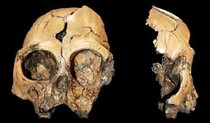You, got that one right ...!
Carolina Naturally is read in 192 countries around the world daily.
Don't forget to visit our sister blog: It Is What It Is
Some of our readers today have been in:
Islamabad, Pakistan
Cairo, Egypt
Valdivia and Santiago, Chile
Jakarta, Kebon, Indonesia
Warsaw, Poland
Germiston, South Africa
Florence, Ivea and Bari, Italy
The Village, Ottawa, Montreal, Waterloo, Winnipeg, Sioux Lookout, Burnaby, Templeton, Mississauga and Oshawa, Canada
Bochum and Regensburg,Germany
Las Palmas De Gran Canarias, Spain
Buenos Aires, Argentina
Homebush and Randwhich, Australia
San Juan, Puerto Rico
Bangalore, Chennai, Delhi, New Delhi, Vijayawada, Shillong and Coimbatore, India
Ouagadougou, Burkina Faso
Kongens Lyngby, Denmark
Petah Tikvah, Israel
Helsinki, Finland
Dublin, Ireland
Istanbul, Turkey
Loyat and Boulogne-Billancourt, France
Hadong and Hanoi, Vietnam
Slough and London, England
Kuala Lumpur, Shah Alam, Puchong and Kuching, Malaysia
Sandsli, Norway
Amsterdam, Netherlands
Managua and Corinto, Nicaragua
Lubny, Melitopol and Zhovti Vody, Ukraine
Mexico City, Mexico
Sampaloc, Philippines
Sarajevo, Bosnia and Herzegovina
Dhaka, Bangladesh
Lisbon, Portugal
Auckland, New Zealand
Colombo, Sri Lanka













